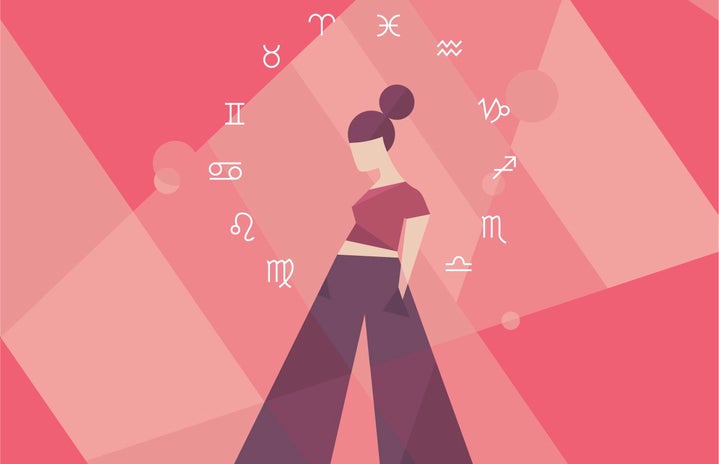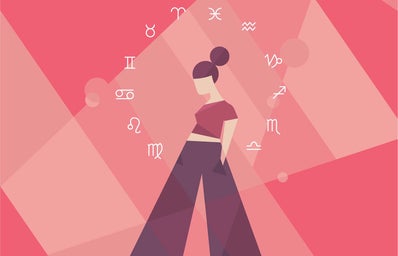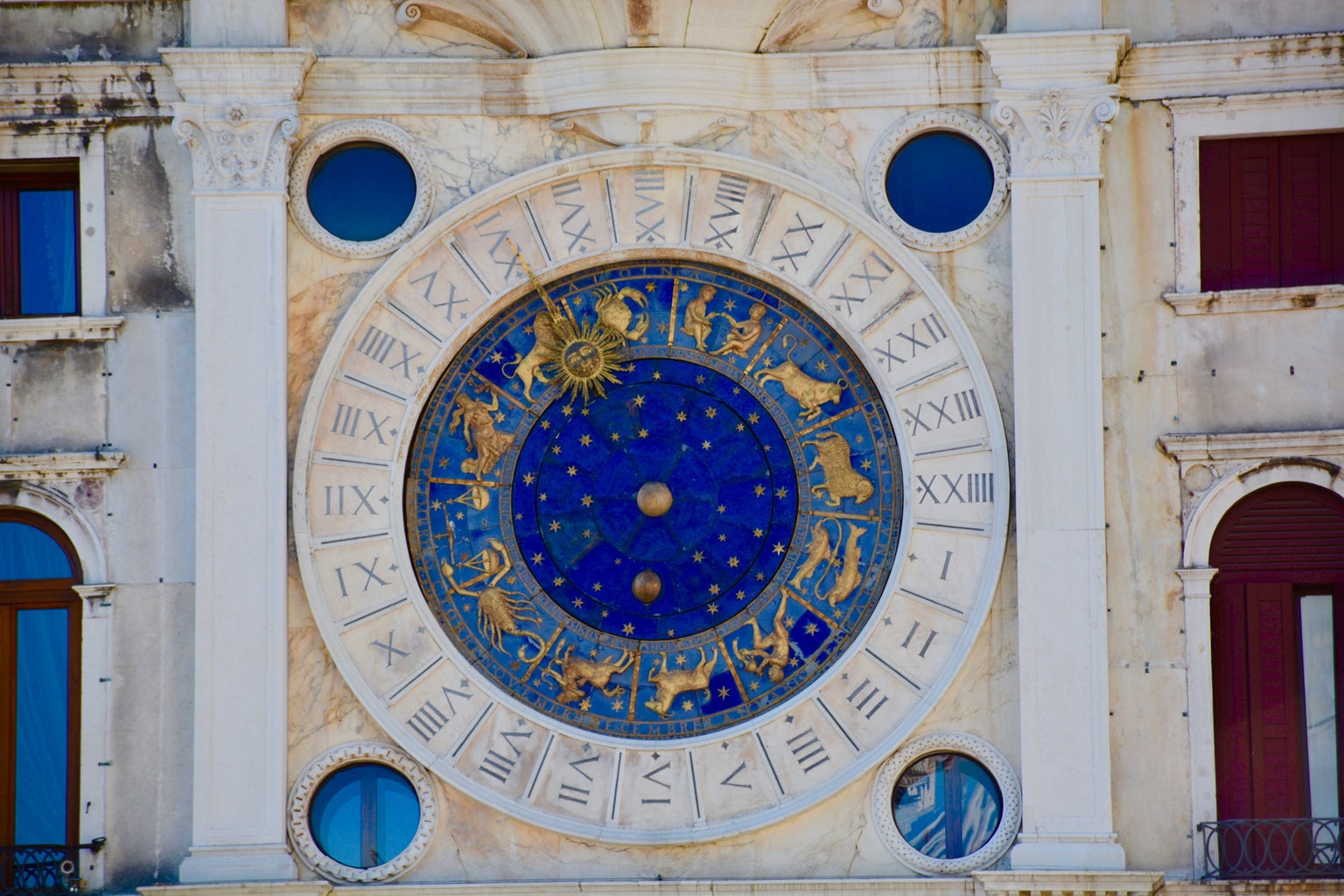Have you ever rolled your eyes as people tried to guess your zodiac sign? Why is that?
I have heard people describe zodiac signs as “space racism” a lot, yet I have never heard of somebody being told that they were lowering the property value of their neighborhood for being a Sagittarius.
Whether or not your zodiac sign affects your personality, the western zodiac has a major impact on American culture.
Starting with the early days of humanity, many people believed that constellations were messages from the gods. This might have been due to the fact that the stars are relatively stable in our night sky and change with the seasons.
Ancient societies often used constellations as maps, both in the sense of cardinal directions and in the sense of moral guidance. Nearly every ancient society incorporated its own mythology into an explanation for why certain constellations appeared at different times of the year.
There is a lot that the stars can tell people. Some cultures would recognize that certain constellations would come around the same time that crops would die and the air grew cold. It is easy to take modern calendars and meteorologists for granted, but there was a time when humans had to observe minute changes in their environment in order to know when the seasons would change.
As far as western astrology, its origins began in ancient Babylon. They invented a calendar based on twelve constellations that they believed the sun would pass through over the year. At the time of this calendar’s development, scholars believed that Earth was at the center of our universe and that the sun revolved around the Earth. Now that we know the Earth revolves around the sun, we also know that it would be impossible for the sun to pass through any stars, let alone an entire constellation.
Over time, the Babylonian calendar made its way to Egypt. The Babylonian calendar and the myths associated with it merged well with Egyptian mythology because the Egyptians had already been tracking the stars for agriculture as well as other seasonal events.
After the Egyptians had adopted the Babylonian calendar and mended it to match better with their own mythology, the Greeks began to notice how their mythology also jived well with this calendar.
This is where the western zodiac as we know it today began to take shape. Seeing as there will always be some level of uncertainty surrounding any ancient mythology, researchers are still not 100% certain which mythological figure is meant to be represented in certain zodiac signs. This is likely because, unlike the Babylonians who initially created the zodiac and were able to directly apply their myths to the constellations, the Greeks had to “work with what they got”.
Anybody who is interested in Greek mythology can not say that the zodiac is “stupid”. This is because the ancient Greeks worked to make their myths fit into the pre-existing zodiac constellations. The most generally accepted myths associated with each sign are as follows:
- Aries is the ram that Jason and the Argonauts stole the golden fleece from.
- Taurus is associated with Zeus in many ways.
- Gemini is Castor and Pollux.
- Cancer represents the crab that attacked Herakles.
- Leo is the Nemean lion.
- Virgo is the goddess of agriculture, Demeter.
- Libra is likely meant to represent Themis, the goddess of justice.
- Scorpio is meant to be the scorpion who killed Orion.
- Sagittarius likely represents Chiron, the mentor of the gods and heroes of Greek myths.
- Capricorn does not have a direct relation to Greek mythology, but could possibly be the god Pan in disguise.
- Aquarius is associated with Ganymede who was the cupbearer for Zeus.
- Pisces represents the story of Aphrodite turning herself into a fish to escape Typhon.
Now that I have established how the western zodiac was important in the lives of ancient civilizations as a calendar and as a means of storytelling, you might be wondering, why does this matter today?
Well, in more recent history, the zodiac signs can be seen depicted in various forms of art. Take Très Riches Heures du Duc de Berry, by the Limbourg brothers in 1413-16 for example. They painted a set of illuminated manuscripts of daily prayers for each month. At the top of each page, they featured a lunette with the corresponding zodiac signs of that month. This may seem like a long time ago, but I believe that it is worth noting the proximity of the zodiac to Christian prayers. The reason that the Limbourg brothers would have included the zodiac is likely due to the fact that even in the 15th century, the agricultural calendar was still based on the zodiac calendar and also because doctors from this time believed that the constellation a person was born under would affect their health.
However, if the 15th century isn’t recent enough for you, I will move forward in time. In 1967, surrealist painter Salvador Dali, painted each of the zodiac signs. He was likely inspired by the worlds growing interest in astrology.
Please note that astrology is a form of divination that uses the zodiac in order to make predictions on a variety of topics. Astrology is often considered a pseudoscience, but the actual zodiac is a tangible observation of constellations. While the term zodiac can sometimes be used in place of astrology, the term astrology can not be used in place of zodiac. Whether or not you prescribe to astrology is not important to this article, my main goal is to educate people on why the zodiac should not be discredited as “nonsense”.
However, western astrology is an interesting topic of study. Astrology, of course, began with the discovery and spread of the zodiac calendar with the Babylonians. By the time of the Enlightenment during the late 18th century, many people had discredited astrology as a legitimate science. Astrology did make a comeback in the 1960s and some theorize that this was just another form of defying the restrictive cultural norms that were being broken at that same time. With the rise of second-wave feminism, civil rights activism, and strides in gay liberation during this decade, it does make sense that people would want to “rebel” in small ways as well.
I would also like to add that the 1960s was a time in the United States when the entire nation was thinking about space. The space race inspired a cultural shift in the USA. “The Jetsons” aired in 1962, “space age chic” was all the rage, and even architecture mirrored the obsession with space. It makes sense that the 1960s also saw a revival in astrology when put into the perspective of the space race.
Astrology has transformed over time, but in the modern age, people in the western world use astrology to guide them on minor decisions or to learn more about a person. There are many magazine articles that publish information on what it means to be born under each sign.
While the majority of people in the western world do not claim to view astrology as an actual science, there has been substantial cultural interest in whether or not when a person is born will affect their personality.
Notably, the emergence of birth order psychology in the 20th century developed by Alfred Adler provided scientific research into how the order a person is born into their family affects their personality. Now, this school of thought does not regard the time of year a person was born, just the personalities associated with oldest, middle, and youngest siblings.
The jury is still out on the factual premise of birth order psychology, but the patterns observed by Adler do occur frequently enough for people to believe that the personalities associated with the order in which a person was born are more than just a coincidence.
Some have also observed that those who are born in the fall are generally better at sports than children born in any other season. This phenomenon is due to the fact that children born in the fall are generally the oldest kids in their grade because of the age cut-off for school. It makes sense that children who are older than the rest of their classmates would be better at sports because they would also be bigger and stronger in most cases.
I mention these two examples of situations when the circumstances of a person’s birth may affect their personality because I am of the belief that with all of the irregularities that life throws at people, we try to recognize any patterns that we can.
With the study done on children who were born in the fall being better at sports, it did not prove that being born in the fall actually made these children more athletic, it just gave them a natural advantage. It makes sense that similar situations may have occurred in other scenarios throughout history. With that knowledge, I believe that even if only a handful of children born under a specific zodiac sign exude similar traits many people would jump to the conclusion that all people born under that sign must have those traits.
At the end of the day, western astrology may not be factual, but it could still be an observation of patterns that generally do not cause anybody any harm. Observing patterns in the stars and in people is human nature, it makes sense that we combined the two in order to feel more in tune with our universe.
So whether you like it or not, the western zodiac will likely remain relevant in our culture for a long time.





